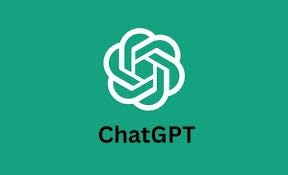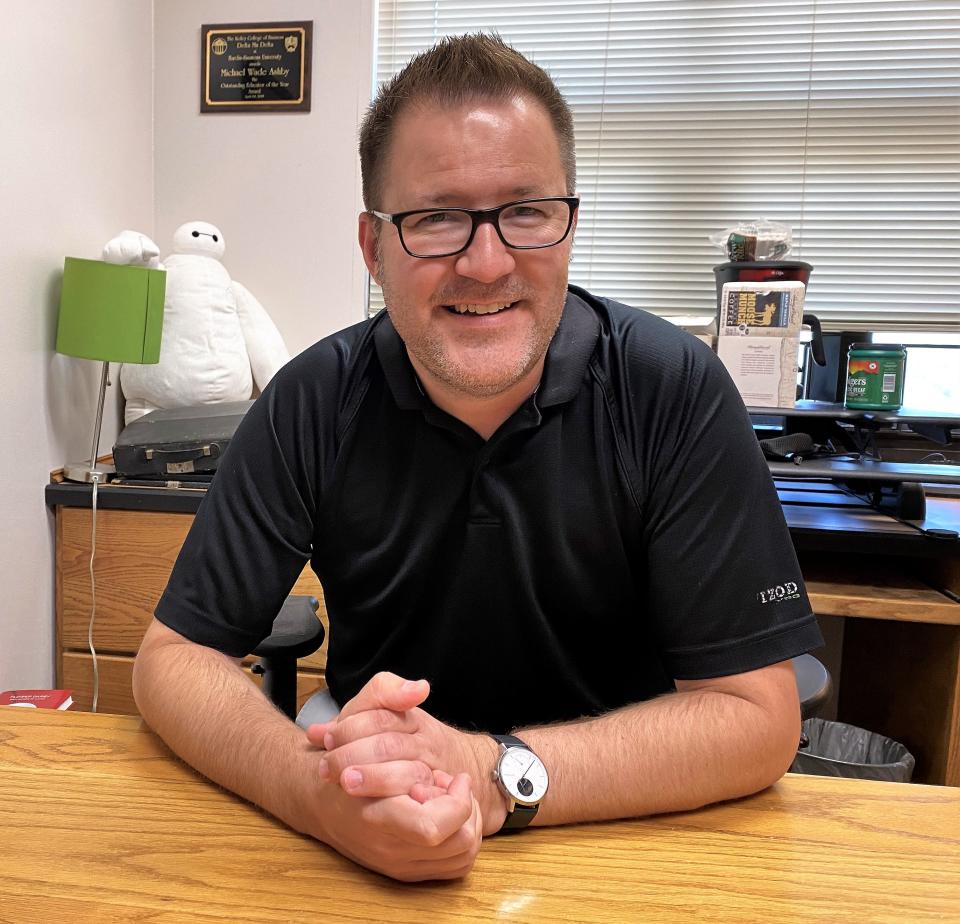AI and Hardin-Simmons: Curriculum reboot needed to prep students
"In the year 3535
Ain't gonna need to tell the truth, tell no lie
Everything you think, do and say
Is in the pill you took today."
- "In the Year 2525," Zager and Evans, 1969
Almost 55 years ago this month, a song by Denny Zager and Rick Evans peered into the future and found it to be perilous. The song, recorded in one take in a field near Odessa - yes, just west of Abilene - was No. 1 for six weeks.
We're still a long way from 2525, but were folk singers Zager and Evans musical prophets?
The emergence of AI - artificial intelligence - in the mainstream would suggest they had an inkling of what was ahead the same year Neil Armstrong walked on the moon.
Nine months ago, ChatGPT was released. It's the product of software firm Open AI and capable of creating human-like text based on past conversations and input on context.
It's called a "language processing tool."

ChatGPT has excited many while causing others concern. Red flags were hoisted on college campuses, where administrators and faculty had to call a time-out and huddle on the sidelines to figure out a game plan on the fly. Would students simply let ChatGPT write their term papers?
Expelliarimus!
As the fall academic term approaches, we talked to representatives of Abilene's three four-year universities about AI's arrival. Actually, it was pointed out, AI has been around for years.
Think Hal 9000 in "2001: A Space Odyssey," which came out in 1968.
A year before the Zager and Evans' musical warning.
"In the year 5555
Your arms hangin' limp at your sides
Your legs got nothin' to do
Some machine's doin' that for you."
HSU computer science prof: College curriculum needs reboot
Wade Ashby, assistant professor of computer science at Hardin-Simmons, developed his own program to check students' work in his entry programming classes.
It grades the work and sends input back to them.
"I wrote that four or five years ago," he said. "It frees up my time up to spend more time with the student."
That's example of how AI has a positive influence on education, he said. And has been around the campus.
He recently has been working with Travis Seekins, VP for enrollment management, to develop ways to identify prospective students and then to keep them at HSU. Particularly at-risk students.
"How can we create an intervention plan?" Ashby said. "You can use machine learning to do that."
In fact, he is pursuing his Ph.D. with his dissertation focusing on using machine learning to predict student outcomes.
"It's more at a generic level, not specific to a discipline," he said.
It's AI at work, he said.
AI also is affecting instruction in HSU's Kelley School of Business.
"We are looking possibly at redoing our computer science curriculum," said Ashby, bringing up GitHub Copilot - an artificial intelligence tool that auto-completes code "in a very intelligent sense."
A study, he said, showed that a development team using GitHub Copilot outperformed a team not using it by 56%.
"It's functioning into the development environment already, so getting our students ready for that, we're looking at shifting our curriculum. I need to lay the groundwork so my students have that foundation when they graduate to walk into whatever is out there," Ashby said.
The large language model that ChatGPT is built on dates to 2014, he said, but it "bloomed" in 2017. So, Ashby said, it has been around but the November release of free ChatGPT sailed it into the mainstream.
He noted in an April presentation that tutoring service Chegg lost 48% on its stock price in one day when ChatGPT was available at no cost.
Ashby said HSU has not set a policy on ChatGPT use but Dr. David Joyner, who heads the learning management system program at Georgia Tech (of which Ashby is a graduate), suggested it or another other AI be treated like "any other agent in the course."
It could be viewed as a participant in a study group, "but you wouldn't ask the study group to write the paper for you," Ashby said.
He said he caught two students this past spring using ChatGPT in his classes.
Cheating remains unethical, he said, "but it also does you a disservice because you're not learning what you need to know to get a career in the computer science industry. I stress that heavily, but at the same time incorporate (AI)."
In one class, he taught in collaboration with AI. Instead of starting from scratch with a project, which has been the norm, use of ChatGPT was allowed "but they had to build something different than what I normally would've required."
Students had to learn about cohesion in coding to build AI models.

"I hope this is where Hardin-Simmons is headed. This is where I am headed. This isn't going away," he said.
He likens using AI now to using card catalogues in the library years ago. A calculator doesn't make a person better at math, he said, "but it makes people better at math a whole lot faster."
Spell check and Grammarly are examples, he said, of AI in use for years.
"We're OK with those," Ashby said.
What is key for an instructor to impart to a student is that work is being assessed, not for production, "but to see that you have that understanding. If AI helps you a little, that's OK but it shouldn't do it for you."
ChatGPT can offer a framework for, say, writing a first draft of a writing project. Then, the writer takes it from there.
To prove his point, he sent an email invitation to HSU faculty and staff for a brown-bag lunch about ChatGPT, Ashby used the program.
"It was fun going back and forth with it," he said. He forgot the date the first time, so revised it. It was too formal, so he asked for the invite to be more light-hearted.
"I sent it out by ChatGPT, prompted by Wade Ashby," he said, laughing. "Part of that was the shock effect - ChatGPT wrote this email.
Ashby recalled a report from the Department of Labor to the president. It addressed the rapid advancement of technology and the possible negative effect on the U.S. worker.
The president, Ashby said, was Lyndon Johnson.
"So this isn't a new concept," he said. The challenge now is considering if technology is advancing faster "that a human can reskill."
This article originally appeared on Abilene Reporter-News: AI and Hardin-Simmons: Curriculum reboot needed to prep students

